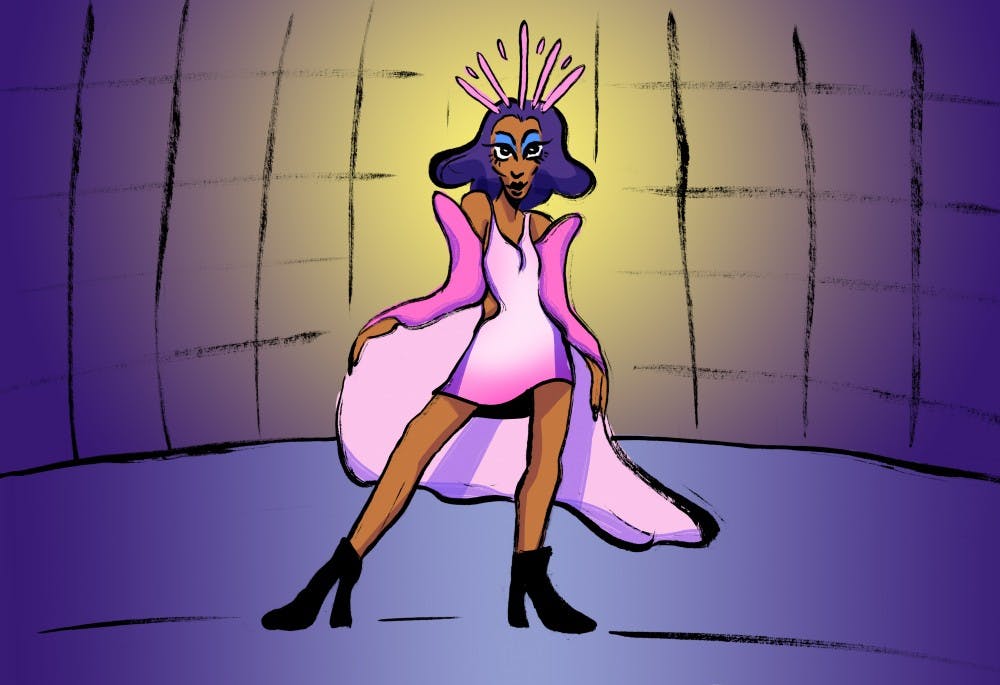This weekend, the annual Athens Block Party will welcome students and community members alike to flood Court Street dressed as the mythical, popular, niche and mystic. However, one thing will be missing from last year’s programming. Among the costumes and makeup, drag performances did not return to this year’s lineup.
For last Halloween, in 2022, drag queens performed a “Hocus Pocus” reading and musical experience followed by face painting for children and families. The events generated outcries at the idea of drag queens interacting with children. This year, there are no drag performances in the schedule.
Last year’s drag performance was heavily clothed, and had the word “drag” not been used it is highly possible there would have been no controversy. However, even if they had been more scandalous, it would have been no worse than the swarms of drunk 20-year-olds in lingerie on their way to-and-from parties uptown that are not protested or avoided. They are seen as college kids having fun. Drag queens are there to entertain and are cognizant of their audiences. If they are presenting art for children, they do not pose a liability, unlike celebrating college students.
According to History.com, Halloween originates with the ancient Celtic festival of Samhain, which marked the end of summer and harvest and the beginning of winter, which also marked a new year. Celts believed on the night before the new year, the worlds of the living and dead blurred. To protect themselves, Celts burnt offerings on bonfires and wore costumes.
Drag has been around for centuries, too. Although some accounts trace it back to ancient Greece and Rome, BBC reported it began with Shakespeare’s era of theater. As women were not permitted to be actors, men would dress as women to perform the plays of the time. The word “drag” even refers to how the dresses men would wear dragged on the floor. Drag appears throughout history, with 18th century England’s Princess Seraphina—also known as John Cooper—who would pass the time in the equivalent of gay bars and never got in trouble for her dress. Drag was necessary for the success and impact of vaudeville, the 1970s modeling world and Stonewall.
Both Halloween and drag predate the U.S., but children are far more likely to encounter sexually explicit Halloween costumes. Drag queens and kings who perform for children tend to be covered up, yet parents continue to protest drag instead. Drag performances are misconstrued as sexual performances, but drag costumes typically exaggerate costumes and add more clothing than collegiate Halloween costumes, beachwear or the outfits up and down Court Street any warm Friday night.
Drag Story Hour, a national event organization where storytellers use the art of drag to read books to children, says they allow kids to see “people who defy rigid gender restrictions” and “the gender fluidity of childhood,” giving audiences queer role models at a young age. The nonprofit has 34 chapters globally and provides age-appropriate programming that emphasizes inclusivity and that drag is an art form.
This is the drag that is being called into question: fully clothed, engaging performers who dedicate their own time, energy and makeup to ensure children have positive, diverse, LGBTQIA+ role models. When drag gets edgier, those shows are often 18+, and children aren’t allowed to attend. Drag queens are not attempting to harm children—they go out of their way to create safe, family-friendly environments. Halloween costumes do not take this same care.
Last year, businesses threatened to pull funding and support over the idea of a drag story hour on Halloween, the one day a year when everyone is dressed up with costumes, hair and makeup. Despite the obvious double standard, drag was still contested. This year, parents will wade their toddlers through a crowd of shirtless firefighters, skin-tight superheroes and Playboy Bunnies, taking no issue before turning to one another and offering illogical gratitude that there are no fully clothed performers reading children’s books.
Katie Millard is a senior studying journalism at Ohio University. Please note that the views and opinions of the columnists do not reflect those of The Post. What are your thoughts? Tell Katie by tweeting her at @katie_millard11.
Editor-in-Chief






